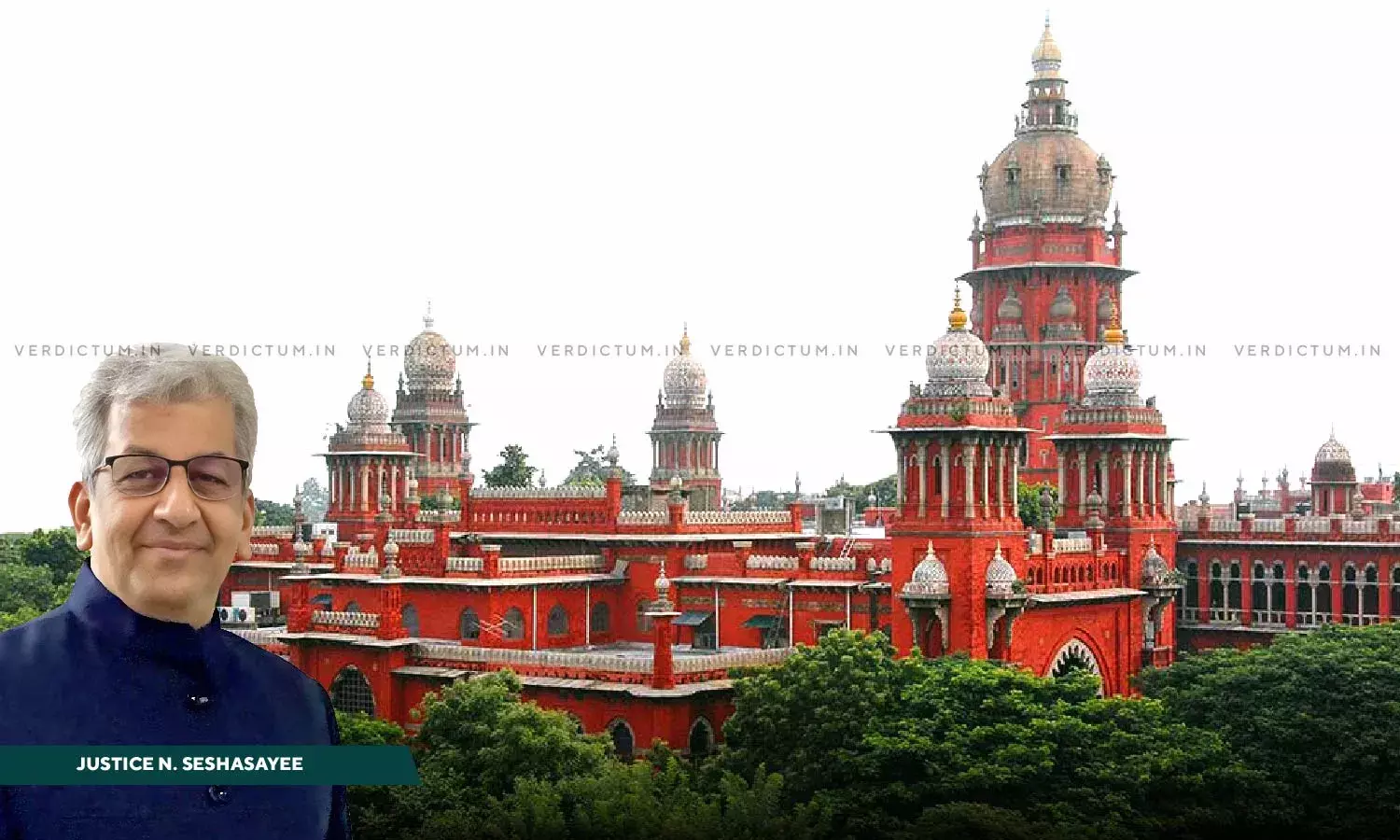Lokayukta Is A Statutory Watchdog & Statutorily Mandated To Enquire Into Any Complaint Alleging Corruption: Madras HC

The Madras High Court has held that Lokayukta is a statutory watchdog and is statutorily mandated to enquire into any complaint alleging corruption.
The Court held thus in a petition filed against the order of the Tamil Nadu Lokayukta by which it refused to take cognizance of the complaint which the petitioner i.e., complainant had preferred against some persons. The said complaint was related to alleged corruption in the procurement of gift hampers for Pongal festival in January 2022.
A Single Bench of Justice N. Seshasayee observed, “The preamble to the Act reads: “An Act for the establishment of a body of Lokayukta for the State of Tamil Nadu to inquire into allegations of corruption against certain public servants and for matters connected therewith or incidental thereto.” Lokayukta may be termed as a statutory watchdog and is statutorily mandated to enquire into any complaint alleging corruption. In terms of Sec.19, if the Lokayukta does not decide to close a complaint, it may have to order enquiry into the allegations it receives either by its inquiry-wing, or by any agency of the Government, or by the vigilance commission.”
The Bench said that before it chooses to close a complaint, the Lokayukta must adequately satisfy itself, objectively, that the allegations contained in the complaint falls squarely within any of the exceptions enumerated in Sec.13(1) of the Tamil Nadu Lokayukta Act, 2018.
Senior Advocate V. Raghavachari appeared on behalf of the petitioner while Advocate General R. Shanmugasundaram and Advocate S. Meenakshi appeared for the respondents.
In this case, the petitioner had preferred a complaint to the Lokayukta, alleging corruption, acts of malfeasance and impropriety committed by respondents vis-a-vis the gift hampers distributed to the under privileged citizens throughout the State, during Pongal festival in January, 2022. As per the announcement made by the Chief Minister, it was to benefit around 2.10 crore ration card holders at the cost of Rs.1,296.88 crores of public money. The gift hamper was to contain 21 food items, however, the scheme was infested with serious irregularities and illegalities, and visited with corruption and administrative malfeasance. The petitioner had therefore, approached the Lokayukta with his complaint to enquire into the above referred to allegations, but the same was rejected by the Lokayukta on the ground that it cannot entertain the complaint as it falls within Section 13(1)(c) of the Tamil Nadu Lokayukta Act, 2018, read with Rules 24(4) (a) to (d).
Turning to the order of the Tribunal, it was seen that the Registrar of Lokayukta had raised an issue on the maintainability of the complaint, and it was how the matter came before the Lokayukta. And the Lokayukta invested its time essentially in ascertaining whether the complaint disclosed anything which it can take cognizance of. In other words, its entire focus was on ascertaining whether it had jurisdiction. Ultimately, it concluded that the complaint raised by the petitioner fell within the exception provided under Section 13(1)(c) of the Act, and that inasmuch as the complaint did not disclose an offence by a public servant punishable under the Prevention of Corruption Act, it cannot be taken cognizance of.
The High Court after hearing the contentions of the counsel noted, “The allegation here, however, does not involve any terms of contract relating to the contractual relationship or contractual obligations between the State or its instrumentalities on the one hand, and its customers or suppliers on the other. The complaint, if read as a whole, only indicates that in the matter of procuring 21 items of gift hamper, there is corruption. What Sec. 13(1)(c) exempts is anything that falls within a contract or working the terms of the contract, but definitely does not include any accusation such as the one levelled by the petitioner.”
The Court said that the standard of scrutiny required of a Lokayukta while examining a complaint is no greater than ascertaining whether the allegations made in the complaint prima facie disclose any acts constituting corruption, or abetment to corruption, or conspiracy to engage in corruption, and includes any improper administrative decision involving or abetting corruption, or any conspiracy to engage in corruption.
“To state it differently, where the allegations do not strictly fall within Sec.13(1), then the Lokayukta may not have too many options than resorting to the inevitable course of ordering an enquiry under Sec.19, lest the objective behind constituting a Lokayukta will be in serious peril”, added the Court.
The Court, therefore, held that the order of the Lokayukta cannot be sustained since it has misapplied Sec.13(1)(c) of the Act to the nature of the complaint before it.
Accordingly, the High Court allowed the petition, set aside the order of Lokayukta, and remanded back the complaint to Tamil Nadu Lokayukta with a direction to revisit the same.
Cause Title- K.R. Jayagopi v. The Hon’ble Tamil Nadu Lokayukta & Ors.


